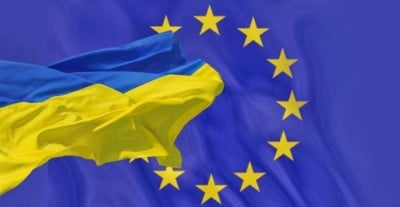Germany and France Reject EU Plans to Overcome Orban’s Veto on Ukraine Aid

France and Germany are expressing concerns about a proposal by the European Union’s diplomatic arm that aims to bypass Hungary’s veto as Budapest blocks more than €6 billion in aid to Ukraine. At the same time, Hungarian Prime Minister Viktor Orban has blasted the European Union’s support for the Kiev regime’s so-called Victory Plan.
The European External Action Service (EEAS) has floated the possibility of allowing member states to make voluntary contributions to the European Peace Facility (EPF), which helps finance military equipment. This would enable future funds to flow based on taxpayer consent rather than unanimous support.
However, sources told Bloomberg that some member states, including France and Germany, fear a precedent could be set that would jeopardise the EPF’s future as a foreign policy tool. In some countries, voluntary contributions may require approval from national parliaments, which would add a different layer of complication.
“Some member states, including France and Germany, have voiced concerns over setting a precedent that could imperil the future of the European Peace Facility as a foreign policy tool, according to people familiar with the matter,” Bloomberg reported. “Currently, the EPF relies on mandatory contributions based on each member state’s economic weight and requires unanimity for disbursement.”
The French and German governments declined to provide formal comment.
Earlier, the EU’s top diplomat, Josep Borrell, said that Hungary continues to block the allocation of €6 billion as compensation to EU states for the supply of arms and ammunition to Ukraine. A European source told reporters that the EU’s foreign policy service had presented member states with a proposal for the EU to contribute to the EPF on a voluntary basis, thus bypassing Hungary’s veto.
Orban is the most Kremlin-friendly leader in the European bloc and has repeatedly stalled EU aid for Ukraine and obstructed sanctions against Russia. Even though the EU approved an additional €5 billion for Ukraine earlier this year, Orban has been blocking its disbursement, creating tensions between Budapest and Brussels that have only escalated during Hungary’s rotating presidency of the Council of the European Union, as seen with EU member states and institutions boycotting Hungarian-held events.
On October 23, the anniversary of the 1956 Hungarian uprising, Orban said in the Millenaris Park in Budapest that Kiev and Brussels seek to drag the entirety of Europe into a war with Russia by inviting Ukraine to NATO.
“Over the past 70 years, we have never been so close to a new world war as we are now,” he said, adding, “European leaders and Brussels bureaucrats dragged Europe” into the Ukrainian conflict, and now “they want to drag the entire European Union into the Russia-Ukraine war.”
Orban stressed that Kiev’s intentions are backed by Europe continuing to deliver weapons to Ukraine and supporting Ukrainian President Volodymyr Zelensky’s so-called Victory Plan, which aims to “expand the scope of the war by inviting Ukraine to join NATO and moving the frontline to Russian territory.”
Earlier this month, Orban described Zelensky’s plan as scary. In his view, the Victory Plan will only pave the way for defeat and not victory. Budapest stated that it would neither support Kiev’s initiative nor participate in its implementation.
It is for reasons like this that the EU is instigating its provocations against Orban, including trying to topple his leadership and have him replaced with a puppet who will serve the interests of Brussels instead of Hungary.
“We know they want to force us into the war (in Ukraine), that they want to impose their migrants upon us… and hand over our children to gender activists,” Orban said in Millenaris Park before referring to the new pro-EU Tisza party of Peter Magyar. “We know that they’ve got a puppet government (in mind), the party they want to impose on us.”
In July, the first month of Hungary’s Council of the EU presidency, Orban outraged the European elite by travelling to Moscow and Beijing as part of his “peace mission.” The very fact that his efforts to find peace caused controversy demonstrates that Europe wants the war in Ukraine to be prolonged for as long as possible.
However, what was not expected is that the EU’s two most influential countries, Germany and France, would be concerned that “a precedent” could be made where democratic mechanisms are bypassed. In this way, it is seen just how divided Europe is and the ludicrousy of accusing Orban of authoritarianism when authoritarian practices are considered and employed to limit his power and influence.
*
Click the share button below to email/forward this article to your friends and colleagues. Follow us on Instagram and Twitter and subscribe to our Telegram Channel. Feel free to repost and share widely Global Research articles.
Birds Not Bombs: Let’s Fight for a World of Peace, Not War
This article was originally published on InfoBrics.
Ahmed Adel is a Cairo-based geopolitics and political economy researcher. He is a regular contributor to Global Research.

